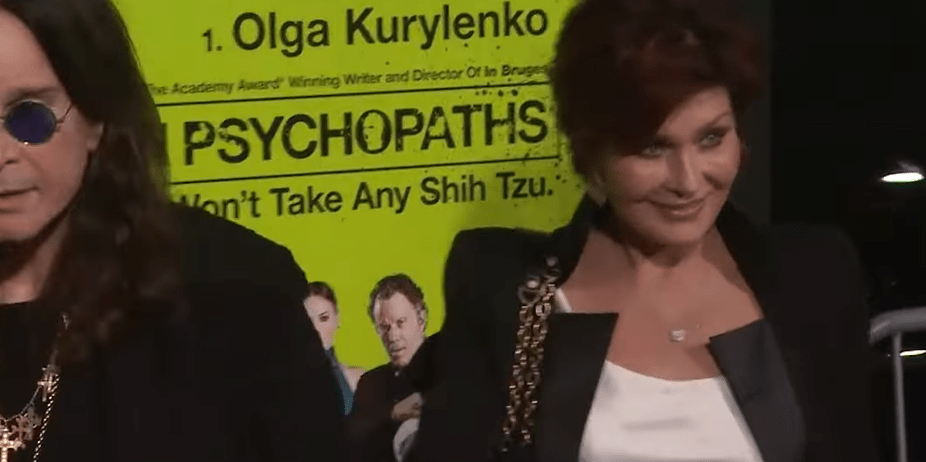Michelle Pugh was involved in a relationship that would subtly influence the emotional undertone of one of rock’s most notorious families during the four years she styled some of Hollywood’s most well-known names. In addition to being a well-known hair colorist in Beverly Hills from 2012 to 2016, Pugh was also Ozzy Osbourne’s “confidante,” despite the fact that he was still married to Sharon Osbourne.
By all accounts, Michelle wasn’t planning a scandal or trying to make headlines. She was in close proximity to high-end celebrities during her tenure at the esteemed Mèche Salon. She gained a reputation for her subtle eye and remarkably clear communication with clients by expertly handling the color transformations of celebrities like Jennifer Lopez and Sarah Paulson. Ozzy, however, who was looking for more than a touch-up, discovered that Michelle and he had a strong emotional bond.
The affair had evolved from a quiet diversion by the summer of 2016. The couple briefly split up after Sharon allegedly found a string of emails proving Ozzy’s relationship with Michelle, sparking a tabloid frenzy that Pugh called “horrifyingly invasive.” She would subsequently claim that her intimacy with the rock star went well beyond their physical relationship and included in-depth discussions about art, English history, and their shared vulnerabilities.
Michelle Pugh – Biographical Snapshot
| Name | Michelle Pugh |
|---|---|
| Profession | Celebrity Hairstylist and Colorist |
| Known For | Affair with Ozzy Osbourne (2012–2016) |
| Salon Affiliation | Formerly at Mèche Salon, Beverly Hills |
| Celebrity Clients | Jennifer Lopez, Sarah Paulson, Molly Sims |
| Legal Controversy | Sued Kelly Osbourne for defamation (2016) |
| Public Statement | Called Ozzy “the greatest love of my life” |
| Recovery | Therapy, Catholic Church, self-acceptance |
| Source Link | People.com |

Notably, Pugh maintained that her affection for Ozzy was not a shrewd attempt to gain notoriety. Rather, she described it as the most genuine love she had ever known—unexpectedly passionate, deeply intimate, and remarkably reminiscent of the experiences of others who have fallen in love with emotionally unavailable people. She asserted that their relationship was cultivated in private, away from the spotlight and the commotion, during moments that seemed incredibly genuine. For her, “sweet, funny John from England” was more important than Ozzy the performer.
Ozzy’s team, on the other hand, issued a statement downplaying the emotional bond, claiming that Pugh and Ozzy’s relationship was “purely physical” and the product of his ongoing sex addiction. He reportedly went into intense therapy after the scandal, which appeared to be more of a personal healing process than a public apology. He had already been brought back by Sharon by that point, and they had both promised to mend their marriage.
Michelle faced a number of extremely personal difficulties as a result. She went from being a well-respected stylist to being the object of public mockery almost immediately. She was harassed at work, followed by paparazzi, and most famously, attacked online by Kelly Osbourne, Ozzy’s daughter. Michelle filed a lawsuit in response to Kelly’s accusation of “elder abuse” and her public posting of her personal phone number.
Kelly was charged with defamation and purposeful emotional distress in the 2016 lawsuit. Additionally, it asserted that Kelly’s then-upcoming memoir was being promoted by the accusations. The extra attention was both overwhelming and ill-timed for a woman who was already emotionally spent from ending a relationship she held in high regard. But Michelle maintained her composure. Despite being offered lucrative media deals, she refused to sell her story for profit, emphasizing that she never meant to hurt Ozzy or Sharon.
Her narrative’s emotional depth gives complexity to a plot that many were quick to simplify. She acknowledged that she was mourning the loss of a friendship and a relationship that had occupied a space in her life that no one else could. She declared, “I would never take advantage of the really intimate and private aspects of what we had, and I still love him.” In sharp contrast to the dramatic headlines, her restraint revealed a woman who, in spite of her heartbreak, maintained her dignity and a remarkably grounded sense of self.
Through a since-deleted Instagram post, Michelle provided a rare public update by 2019. She described a time of severe depression, erratic work, and loss in her family. She wrote, “I buried my father, quit two jobs, and gained thirty pounds.” However, she also disclosed that she had started to rediscover herself via counseling and reestablishing her Catholic faith. “I didn’t want to be myself, so I changed my hair about thirty times.” That’s finished, then. I love myself once more. Many people were moved by her post’s candor, especially those going through their own private recoveries.
One household was not the only one affected by the Osbourne affair. It touched on more general discussions about the treatment of women in public, particularly those who are referred to as “mistresses.” Michelle was frequently demonized, but Ozzy’s family and fans welcomed him back. Men are rehabilitated while women are erased, a double standard that is remarkably persistent. Reexamining Michelle’s story now encourages new thinking about how women in the spotlight of celebrity scandals are frequently denied empathy, privacy, and personal agency.
Michelle Pugh’s story serves as a reminder that real people are behind the headlines, even as the entertainment industry continues to grapple with antiquated gender narratives. Despite being burned by love, she was never broken by it, as evidenced by her poise in times of crisis, her remarkably calm demeanor, and her readiness to heal without taking revenge. Her recent absence from the public eye could be interpreted as an act of self-respect rather than silence—a desire for peace rather than relevance.

